Massages are a popular form of relaxation and stress relief for many people. They can be soothing, and invigorating, and provide numerous health benefits. However, some individuals may experience muscle soreness after a massage, leaving them wondering if this is a normal side effect or something to be concerned about. In this article, we will delve into the topic of muscle soreness after a massage and reveal the side effects associated with it.
What is Muscle Soreness After a Massage?
Muscle soreness after a massage, commonly referred to as “post-massage soreness” or “post-massage muscle soreness,” is a sensation of discomfort or pain in the muscles that can occur following a massage session. It is often described as a feeling similar to that of delayed onset muscle soreness (DOMS) that can be experienced after engaging in intense physical activity, such as a strenuous workout. Muscle soreness after a massage can vary in intensity and duration, ranging from mild discomfort to more severe pain that can last for several days.
Causes of Muscle Soreness After a Massage
There are several potential causes of muscle soreness after a massage, and it can be helpful to understand them to determine whether it is something to be worried about. Some possible causes of muscle soreness after a massage includes:
Deep Tissue Massage
Deep tissue massage is a type of massage that involves applying firm pressure to the deeper layers of muscle tissue to release tension and knots. While it can be highly effective in relieving muscle tension, it can also cause some soreness and discomfort, especially if the pressure applied during the massage is intense. The pressure applied during a deep tissue massage can sometimes cause micro-tears in the muscle fibers, resulting in muscle soreness afterward.
Trigger Point Therapy
Trigger point therapy is a technique used in some massage sessions that involves applying pressure to specific points on the body to release tension and alleviate pain. This type of therapy can sometimes cause muscle soreness afterward, as the pressure applied to the trigger points can be intense and may result in micro-tears in the muscle fibers.
Stretching
Some massages may involve stretching techniques to improve flexibility and release tension in the muscles. Stretching can sometimes cause mild muscle soreness, especially if the muscles are stretched beyond their usual range of motion.
Releasing Toxins
During a massage, the therapist applies pressure to the muscles, which can help release toxins that have built up in the muscles. As these toxins are released, they can cause some discomfort and muscle soreness afterward.
Personal Sensitivity
Everyone’s body is different, and some individuals may be more sensitive to pressure and manipulation of their muscles during a massage. If you have a lower pain tolerance or are particularly sensitive to touch, you may experience muscle soreness after a massage, even if the pressure applied during the session was not overly intense.
Is Muscle Soreness After a Massage Normal?
In general, muscle soreness after a massage is considered normal and is often a sign that the message has been effective in releasing muscle tension and improving blood circulation. It’s similar to the muscle soreness you may experience after a strenuous workout. The soreness is usually mild to moderate in intensity and typically resolves on its own within a day or two.
However, if the muscle soreness is severe, persistent, or accompanied by other symptoms such as bruising, swelling, or numbness, it may be a sign of an injury or a more serious condition. In such cases, it’s important to consult with a healthcare professional to rule out any underlying issues.
How to Minimize Muscle Soreness After a Massage?
While muscle soreness after a massage is generally normal, there are steps you can take to minimize discomfort and promote healing. Here are some tips to help you manage muscle soreness after a massage:
Hydrate
Drinking plenty of water before and after a massage can help flush out toxins from your muscles and prevent dehydration, which can contribute to muscle soreness. Staying well-hydrated can also help your muscles recover more quickly.
Apply Heat or Cold
Applying heat or cold to the sore muscles can help reduce inflammation and soothe discomfort. You can use a heating pad, hot water bottle, or warm towel, or take a warm bath to apply heat. Alternatively, you can use an ice pack, cold compress, or take a cool shower to apply cold. Experiment with both heat and cold to see which one works best for you.
Gentle Movement
Engaging in gentle movement and light stretching after a massage can help improve blood flow to the muscles and prevent them from becoming stiff and sore. Avoid engaging in high-intensity activities or anything that involves sudden movements as this can further strain the muscles.
Take an Epsom Salt Bath
Taking an Epsom salt bath after a massage can help reduce muscle soreness and inflammation. Simply add two to three cups of Epsom salt to a warm bath and soak for about 20 minutes.
Rest
Getting plenty of rest after a massage is essential for your body to recover and repair the muscles that were manipulated during the session. Make sure to get enough sleep and avoid any strenuous activities until you are feeling better. If the muscle soreness persists or gets worse, consult with a doctor or physiotherapist to explore additional treatment options.
Eating Balanced Meals
Eating balanced meals with plenty of lean protein and complex carbohydrates can help promote muscle recovery after a massage. Foods that are high in anti-inflammatory compounds such as omega-3 fatty acids, vitamin C, and antioxidants may also be beneficial.
In conclusion, muscle soreness after a massage is usually normal and not a cause for concern. However, if the discomfort is severe or accompanied by other symptoms, it’s important to consult with a doctor or physiotherapist. Managing muscle soreness can involve drinking plenty of water, applying heat or cold treatments to the area, engaging in gentle movement and stretching, taking an Epsom salt bath, getting plenty of rest, and eating balanced meals with anti-inflammatory compounds. With the right care, you can reduce muscle soreness after a massage and promote healing.
Our Expert’s Take
Muscle soreness after a massage is very normal, and should not be something to worry about. Depending on your individual needs and preferences, there are a variety of approaches for minimizing any potential discomfort or pain. Although it is important to practice caution and listen to your body’s natural responses, you do not need to let the idea of discomfort overwhelm you or prevent you from enjoying the many benefits that massage therapy can provide. Make sure to hydrate, apply heat or cold, lightly move after massage treatments, take an Epsom salt bath, rest, and eat balanced meals. All of these options will ultimately benefit your long-term health and wellness.
Here’s our expert’s take on this: continuing regular massage treatments—massage provides positive results in both physicality and mentality—will enhance your overall experience if you stay conscious of sensations during and after your treatment sessions.
Are You an Athlete Experiencing Pain But Don’t Know Where to Turn for Help?
Are you tired of dealing with chronic pain and discomfort caused by imbalanced body postures, repetitive movements, or a sedentary lifestyle? Look no further than Beyond Ergonomics, where our expert team specializes in identifying and addressing the root causes of your pain problems. Whether you’re a professional athlete or a desk-bound office worker, we provide personalized solutions to help you improve your overall health and wellness.
And if you’ve tried every remedy under the sun and still can’t find relief, MedicinEvolution’s Bodywork Beyond Massage is here to help. Our innovative approach goes beyond traditional massage to target the underlying issues causing your pain and discomfort. Say goodbye to the endless cycle of pain and frustration, and make your appointment today to experience the life-changing benefits of our unique approach to bodywork.
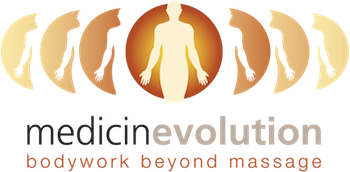
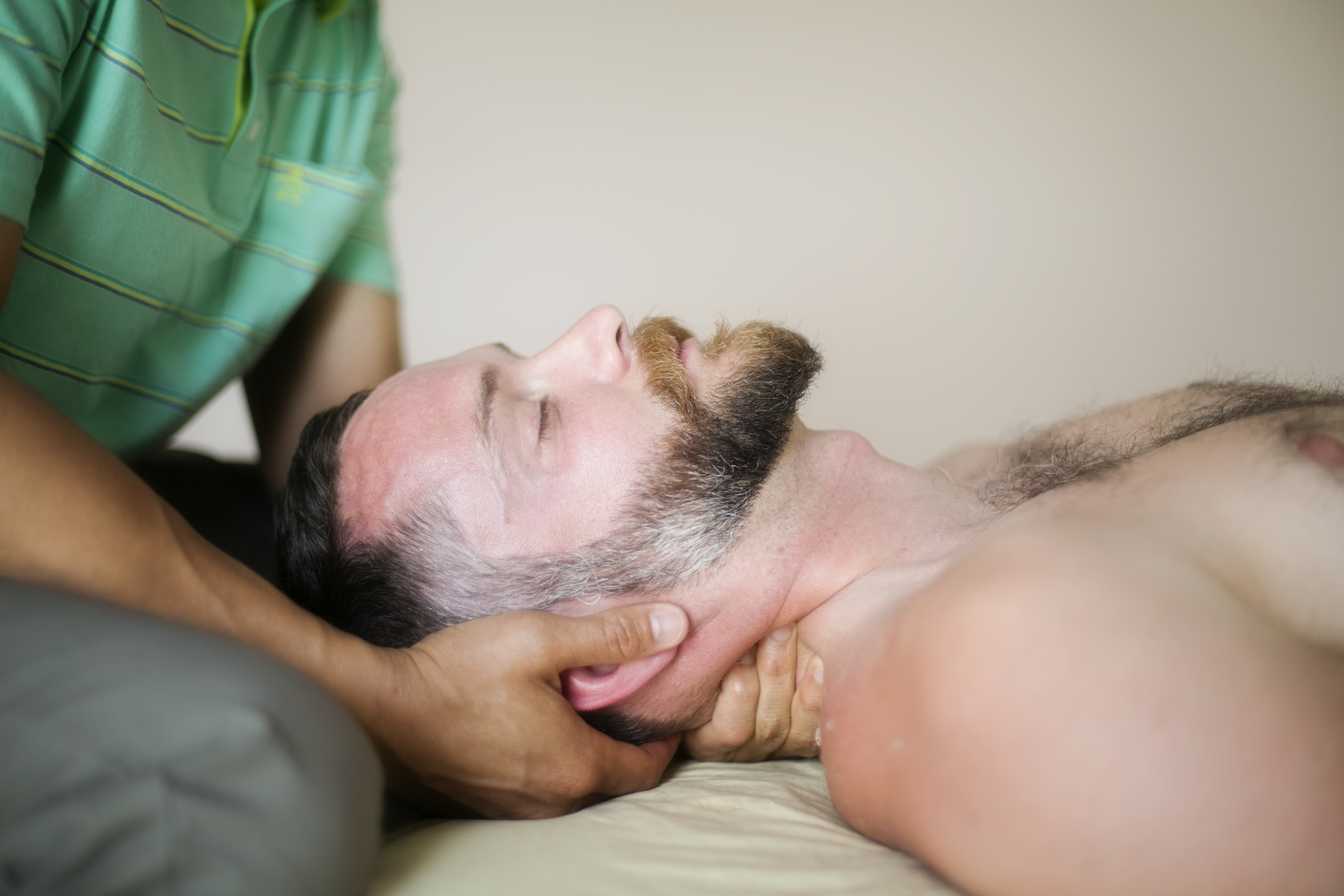

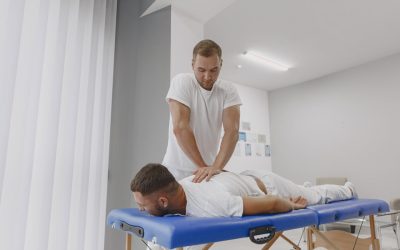
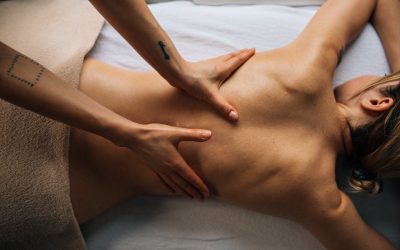
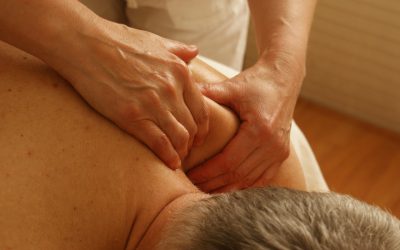
0 Comments